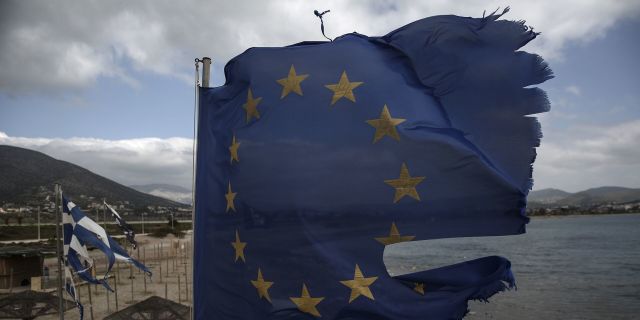Resalat: The West has created a crisis network to benefit
The West has learned how to masterfully create crises and benefit from them, writes Resalat. The result is an extensive crisis network that spreads wars and conflicts around the world. But one day this monster will turn against its creators.
The escalation of the conflict in Ukraine and NATO's desire for a "war of attrition" have led to the creation of a new system of conflicts in international relations. In other words, the Atlanticists' insistent demands for the expansion of the alliance in the east, their creation of a chronic and unstable situation of tension near Russia's western borders did not yield any result, except for the formation of systems and infrastructures opposing each other on an almost permanent basis.
In addition, America's expansionism in East Asia, implemented jointly with its European partners, and intervention in the situation in Taiwan have expanded the scale and increased the depth of such conflicts. This process can be called the "reproduction of the crisis in the international system." This is a rather dangerous process, and the role of the United States and the European Union in its genesis and approval is undeniable.
The activation of the West in Russia's Eastern European periphery led to the outbreak of a military conflict in Ukraine in 2021. But at the same time, such crises are not limited to Eastern Europe or Central Asia. We are witnessing the functioning of an entire crisis network and the construction of its channels, which diverge from the West in different directions — West Asia, Central Asia, Eastern Europe, East Asia. That is, all these geographical locations are the end points of these channels, whereas we can consider only one starting point — the United States of America.
After fueling the crisis, America and its European allies are trying to make the most of the results obtained and exploit the crises they have created for their own hegemonic and expansionist purposes. For example, the European Union recently approved new gas sanctions against Russia, despite the fact that it needs this gas more than anyone else, and this means that it (the European Union) serves Washington's strategic interests.
Certainly, we are witnessing the formation of stable crisis systems and conflicts in international relations. Following the creation of these conflicts, the West hoped to fix and root them, as well as use all their released capacities and potential. But at the same time, many representatives of the expert and analytical community in America and Europe warn against continuing such a policy of "constructing crises", especially if their results are used by such short-sighted politicians as Biden, Blinken, Pompeo, or such dilettante politicians as Trump.
The same amateurs can be observed in Europe: Macron, Olaf Scholz, von der Leyen — they have not only lost the ability to "lead" these crises, control their infrastructure and analyze their results in the realities of the international system of the XXI century, but are also unable even to manage the internal and external relations of their own region, that is, the European Union. What happened in the recent elections to the European Parliament, where extremist and nationalist parties were able to significantly strengthen their positions, shows that the people reject the results of the policies of those who previously held seats in parliament — that is, moderate Social Democrats or conservatives.
In such a situation, the results of the creation of crisis networks or the policy of crisis construction by Western players are extremely clear. They actually manage to create a web of local wars and conflicts, but they will not have the opportunity to manage their consequences in both the near and distant future. The most obvious and inevitable results of this activity will be the further escalation of these crises and their return to the security environment of the West itself, and sooner or later we will witness this.
Author of the article: Hanif Ghaffari

